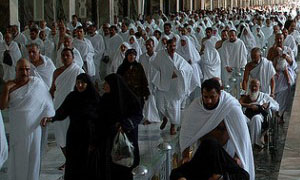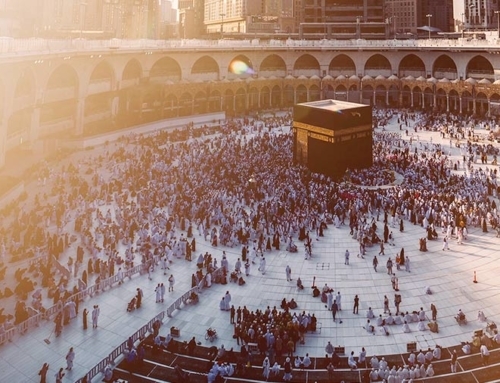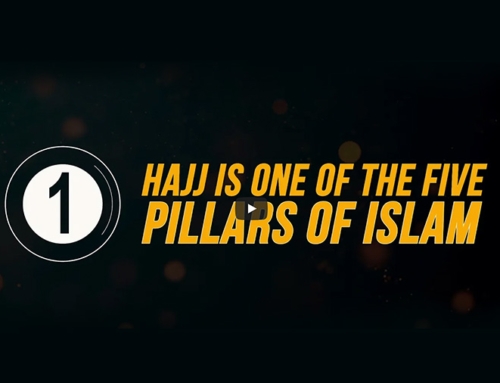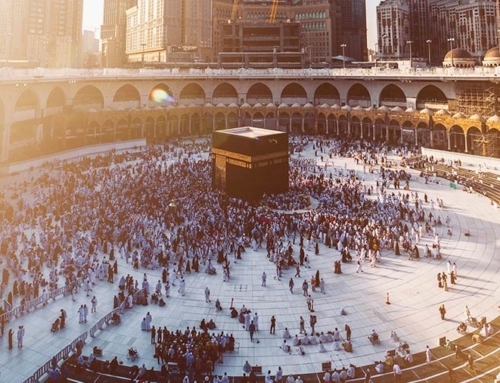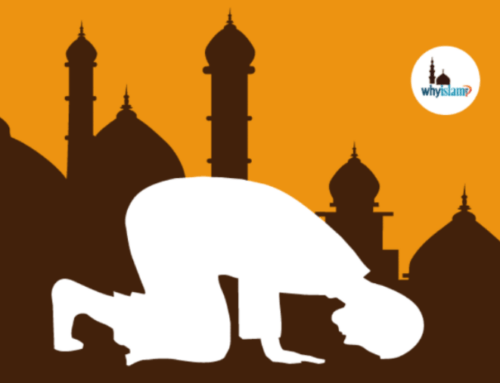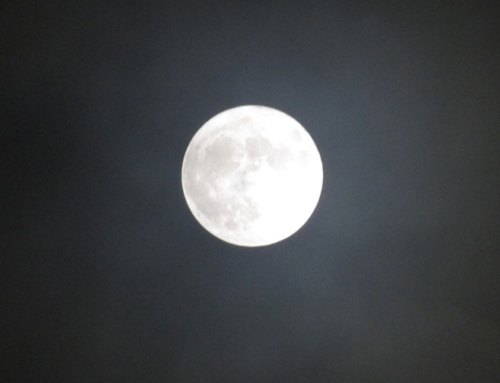By: Dr. Mohammad Omar Farooq
Embracing Islam: A Path of Complete Submission and Endless Rewards
Islam teaches us to submit completely and whole-heartedly. “O you who believe! Enter into Islam completely, whole-heartedly…” (Quran 2:208)
It also calls for a submission that is spontaneous and conscientious, without any hesitation or resistance against the will and guidance of God. “But no, by your Lord, they can have no (real) faith, until they make you judge in all disputes between them, and find in their souls no resistance against your decisions, but accept them with the fullest conviction.” (Quran 4:65)
There is great – truly great – news from God. “Those who have faith and do righteous deeds, they are the best of creatures, their reward is with God: Gardens of Eternity, beneath which rivers flow; they will dwell therein forever; God is well pleased with them, and they with Him: All this for such as fear their Lord (the cherisher and sustainer).” (Quran 98:7-8)
Eid al-Adha: Embracing the Joy of Sacrifice and the Legacy of Ibrahim
Eid al-Adha is a great and unique occasion of joy and celebration. Ironically, this joy and celebration revolve around sacrifice. It would probably make sense to only those who understand that the joy of giving that touches others’ lives is far greater and deeper than the joy of receiving.
This great occasion of Eid al-Ad’ha is tied to an unique event, the Hajj; a unique city, Makkah; and a unique family, the family of Ibrahim (peace be upon him). Indeed, what the Quran refers to the Milla of Ibrahim is essentially rooted in the legacy of a model family. Say: “God speaks the Truth: follow the Community of Ibrahim, the True in Faith; he was not of the Pagans.” (Quran 3:95)
Ibrahim’s Unwavering Submission: The Inspirational Story of Eid al-Ad’ha
We cannot discuss Eid al-Ad’ha without remembering Ibrahim, who represents in the Quran an ideal submission. He never hesitated to respond to the call and command of his Lord (the Creator, the Sustainer and the Evolver). He never considered anything too precious to be withheld when it came to fulfilling the wish of his Lord. Everything he did was commanded by God, and was fulfilled by him conscientiously with honor and nobility. We are all too familiar with the story of his unwavering faith and conviction, and his supreme sacrifice as embodied in the event when he was ready to sacrifice his dear and only son to fulfill the wish of his Lord. “Behold! his Lord said to him: “Bow (submit your will to Me): He said: “I bow (submit my will) to the Lord and Cherisher of the Universe.” (Quran 2:131) We know, of course, God didn’t really want him to slaughter his son, he just wanted to see if Ibrahim was ready to submit entirely and unconditionally. No loving God would have exacted such a sacrifice of one’s own child in reality.
Ismail’s Exemplary Submission: A Profound Lesson from Eid al-Ad’ha’s Legacy
Another member of this ideal family was the first son of Ibrahim, Ismail. The Quran presents him as like father like son. “… (Abraham) he said: ‘O my son! I see in vision that I offer you in sacrifice: Now see what is your view!’ (The son) said: ‘O my father! Do as you are commanded: You will find me, if God so wills, one practicing patience and constancy!” (Quran 19:102)
In his submission to the will of his Lord, Ismail was no less ideal. He submitted to the will of God whole-heartedly and with a heart full of peace and tranquility. Once again, there are very few among us who are not already familiar with the role and position of Ismail in the heritage of Tawheed (oneness of God) and the eternal truth.
The Forgotten Legacy of Mother Hajar: An Integral Part of Eid al-Ad’ha’s Story
Going beyond the customary commemoration of the stories of Ibrahim and Ismail, I want to focus here on the not-so-mentioned legacy of a great woman, Mother Hajar (may God be pleased with her) the wife of Ibrahim and the mother of Ismail . Indeed, she is an integral and as important part of the legacy of Tawheed (Oneness of God) and the community of Ibrahim. Her submission to the will of her Lord and her sacrifice were as ideal as that of Ibrahim and Ismail. God has ennobled her in the Quran by making Safaa and Marwah integral to the performance of Hajj, one of the five pillars of Islam. These are the two hills between which she ran back and forth in search of water for her beloved infant son, while she was all alone according to the plan of God Himself. “Behold! Safaa and Marwah are among the symbols of God. So if those who visit the House in the Season or at other times, should compass them round, it is no sin in them. And if any one obeys his own impulse to Good, be sure that God is He Who recognizes and knows.” (Quran 2:158)
A Mother’s Unwavering Faith: The Inspiring Journey of Hajar with Ibrahim and Ismail
Mother Hajar was not just a wife of Ibrahim, but she was deeply loved by him. But, once again, to fulfill the wish of God, he brought Mother Hajar and their beloved infant son, Ismail, to this abandoned, desolate, barren valley of Makkah. There was no such inhabited place called Makkah at that time.
As Ibrahim brought Mother Hajar and Ismail to that barren, rugged valley, she asks (as in the Hadith): ‘O Ibrahim! Where are you going, leaving us in this valley where there is neither any person nor anything else (to survive)?’ She repeated that to him many times, but he did not look back at her. Then she asked him, ‘Has God instructed you to do so?’ He replied, ‘Yes.’… That was enough for Mother Hajar. Now she knew that it was according to the Divine Will. With the same nobility and dignity of faith as it ran in that family, “She said, ‘Then God will not neglect us.’ (In another version): ‘I am pleased to be (left) with God.’
From Desolation to Blessings: The Miraculous Journey of Hajar and the Emergence of Makkah
Then Ibrahim left and she was alone with her infant. Makkah was not an inhabited place yet. Food and water that Ibrahim provided them with were consumed by the mother and baby. Desperately, she started searching for water running back and forth through the valley between the hills of Safaa and Marwah. Surly God would not abandon the family of Ibrahim and so, she was visited by the arch-angel Gabriel.
Water, in the form of an ever flowing spring, the Zamzam, was made available to them by direct intervention of God. Right during that time, the tribe of Jurhum, passing by the valley saw birds flying. Realizing that water must be available, they searched and discovered Mother Hajar and Ismail. They sought permission to settle there. Thus, the desolate valley of Makkah became an inhabited area. Ibrahim returned there much later and laid the foundation of Ka’aba. Makkah ultimately was to emerge as a city and as the perennial heartland of Tawheed, the belief in oneness of God.
The Inspiring Legacy of Mother Hajar: An Unsung Heroine in the Founding of Makkah
God is glorified. He took such a significant and noble service from a woman. But consider another aspect. What kind of situation Mother Hajar was placed into? In that desolate, uninhabited valley, what might have been going on in her mind?
While unconditionally committed to her Lord, she was constantly searching, moving and struggling not thinking about herself any longer, but to find some water and save her child. What could she think about herself?
If any human being needs to be identified, whom would you consider the foremost as far as founding of Makkah as a city? Is there any other civilization, or even a city of this stature, that has been brought about by such primary contribution and sacrifice of a woman? It is so unfortunate that so little about her is talked about even on such pertinent occasion of which she is an integral part.
What men and women can learn from a woman, whose service and contribution ennobled the Hills of Safaa and Marwah to the status of “among the Sign of God,” which must be visited, and whose quest for saving the object of her love must be reenacted?
Following the Noble Path: Embracing the Legacy of Ibrahim and Prophet Muhammad
From far away as the pilgrims perform this reenactment, we also want to be like Ismail and have a share of this noble woman’s affection. But there is a greater symbolic implication!
This community of believers follow the Way of Prophet Muhammad, a way that primarily was designed after the Way of Ibrahim and his family. The role that was played primarily by the family of Ibrahim, was broadly assumed by the Prophet Muhammad , but now involving not just his family, but the larger community of believers. This community (Ummah) is created for mankind! (Quran 3:110)
“Our Lord! Grant us what you did promise to us through your Prophets, and save us from the shame on the Day of Judgment: for you never break Your promise.” And their Lord has accepted of them, and answered them: “Never will I suffer to be lost the work of any of you, be he male or female: you are members, one of another; those who have left their homes, or been driven out therefrom, or suffered harm in My Cause, or fought or been slain; Verily, I will blot out from them their iniquities, and admit them into Gardens with rivers flowing beneath; a reward from the Presence of God, and from His Presence is the best of rewards. (Quran 3:194-195)
A Celebration of God’s Unfailing Promise: Embracing Peace, Happiness, and Prosperity
For all the toil and struggle, the hardship and sacrifice, the efforts and pursuits, is it not truly deserving of celebration that our works will not be in vain, will not suffer any loss? This is a guarantee from none other than God.
With all the worldly promises, guarantees, and warranties that give us a sense of security, one tends to forget that there is also a vast world of deceptions. If we cannot have peace of mind with the promise from God, we have nowhere to turn to. Thus, what could be more worthy of our celebration than the invitation of God to an eternal life of peace, happiness, and prosperity, an invitation that comes with the unfailing promise of God. This, of course, requires that we commit ourselves to the positive and constructive pursuit of bringing peace, happiness and prosperity to the humanity.
Excerpts taken from Islamicity.com
Got Questions?
We have Answers. Get in touch now.


